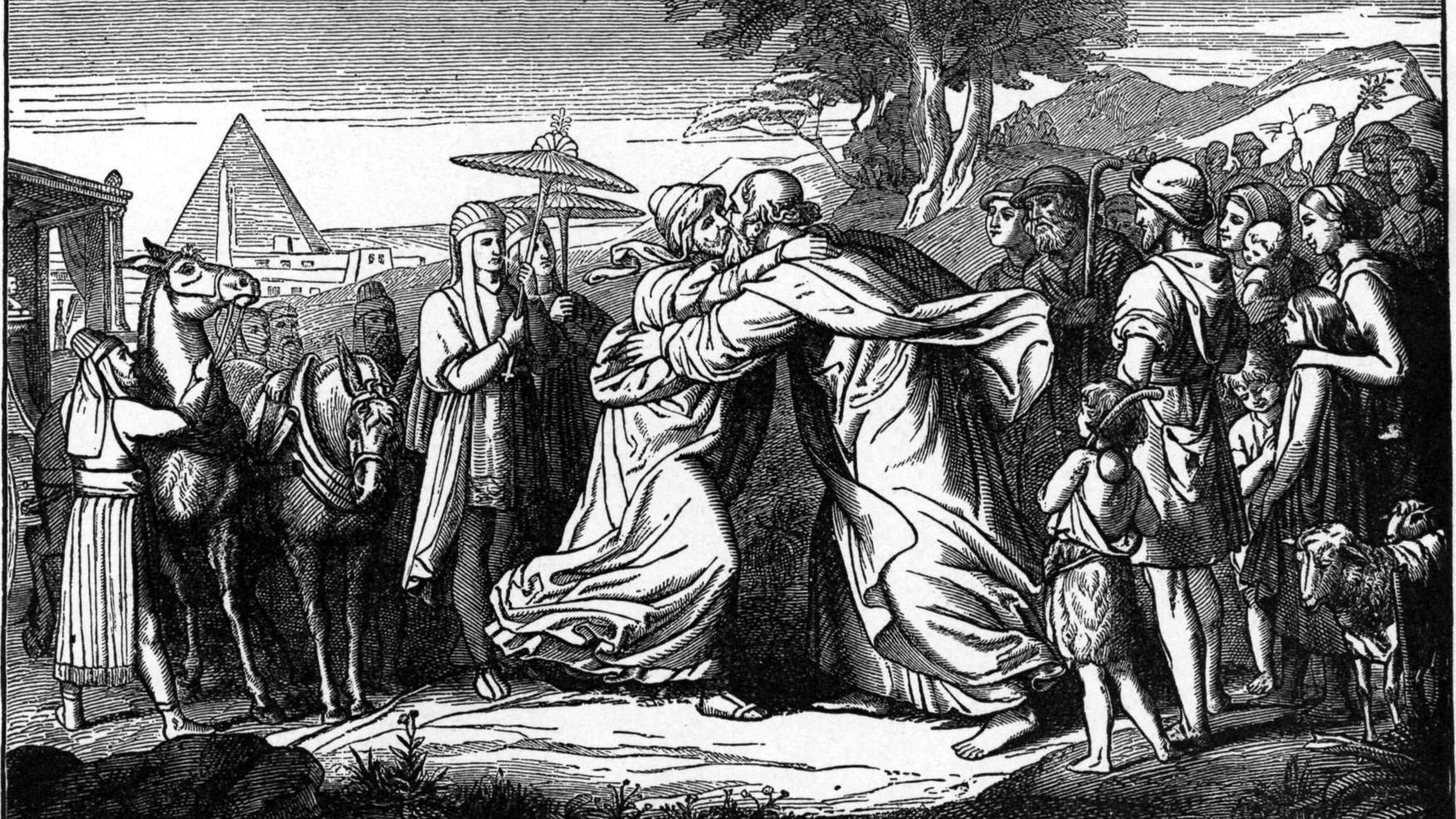For anyone who has spent any length of time in the Old Testament, the scene is likely familiar: Joseph, the high official in Pharaoh’s court, before his brothers, tearfully reveals his identity (Gen. 45:3). He’s been separated from the family for decades, and they’ve assumed he was lost to them or dead. After a few tense interactions, Joseph finally discloses his identity in an emotional flood.
In the background in this scene, as we see Joseph’s tearful face and hear the emotional reaction, stand the sons of Jacob, Joseph’s brothers. These same men earlier resented Joseph (Gen. 37:4, 8, 11); the same men sold him as a slave and falsely reported his death to their father (Gen. 37:31–33).
For a moment, let’s focus our attention on the fourth son, Judah.
Judah’s Disobedience
This is Judah, son of the “hated” wife, Leah; named “praise” as his mother accepted her complete dependence on God (and alienation from his father) at his birth (Gen. 29:35). The first incident recorded in Judah’s life is one of deception and murder: he and his brothers, led by oldest sons Simeon and Levi, trick the sons of Shechem into being circumcised; while the men recover, they slaughter the men and plunder the city (Gen. 34).
This same Judah, when confronted with the choice to kill Joseph or sell him into slavery, opts for the latter. While we could extol him for saving Joseph’s life (along with Rueben, who suggested they abandon Joseph instead of killing him, Gen. 37:22), it’s also true that Judah takes the opportunity to leave his brother for dead and profit monetarily (Gen. 37:26–27).
This same Judah fails to keep his vow to Tamar as her father-in-law. When his first two sons were put to death due to their wickedness, Tamar is left alone. Instead of marrying her to his third son, Judah sends her home (Gen. 38:11). Then later, he unwittingly takes her for a prostitute and treats her like one (Gen. 38:15). When their encounter results in her pregnancy, he at first shames her—until he discovers he’s the man responsible for the child within her. Then, and only then, does Judah admit his unrighteousness (Gen. 38:26).
Judah’s Repentance
This same Judah, years later, stands in Pharaoh’s court before a man he knew held the power of life and death in his hands, and says “take me instead” when his brother Benjamin is called out (Gen. 44:33). Benjamin is another father favorite. Judah would never hold the same status as his youngest brothers, but given this second chance to intervene on one of their behalf, this time Judah gets it right. He intercedes.
It’s clear that God’s grace affected Judah, enabling him to love his family, both brother and father, in a sacrificial manner.
We’ve come a long way from “Come, let us sell him to the Ishmaelites” (Gen. 37:27) to “Please let your servant remain instead of the boy as a servant to my lord, and let the boy go back with his brothers” (Gen. 44:33). It’s clear that God’s grace affected Judah, enabling him to love his family, both brother and father, in a sacrificial manner.
“Let your servant remain instead of the boy.” How those words must’ve landed on Joseph’s ears. Before him stands a testimony of God’s grace: Judah, an older brother, now changed and playing the part of protecting the younger, weaker brother. The ways in which Judah had failed Joseph were left behind. Judah was now a protector of both young (Gen. 44:32) and old (“I fear to see the evil that would find my father,” Gen. 44:34). In the next verse, we see Joseph utterly undone: unable to “control himself,” he makes himself known to the brothers (Gen. 45:1).
Though we don’t have the whole picture, some scholars speculate that the Tamar tragedy was the turning point for Judah. Tamar acts justly in calling Judah to account for his sin. When he’s exposed as the man who has defiled her, his response is “she is more righteous than I” (Gen. 38:26). These aren’t the words of a man making excuses for his wicked behavior. Judah’s response implies that he is, at last, honest with God and himself about his sin.
There is repentance, a turning. And the next time we see Judah, he’s different.
God’s Faithfulness
With Judah’s shocking history in mind, consider how gracious of God to make Judah’s line the kingly line of Jesus’s heritage.
When Jacob’s sons assemble for their father’s deathbed blessings (Gen. 49), Judah receives the first positive words (Gen. 49:8–12); the brothers before him receive only stern warnings. Judah eventually becomes the father of many righteous kings: David, Jehoshaphat, Uzziah, Jotham, Hezekiah, and Josiah among them. Finally, one of his descendants is another Joseph, “of the house and lineage of David,” who brings his young pregnant wife to Bethlehem to register for the census (Luke 2). Indeed, this baby would be the “Lion of the tribe of Judah” (Rev. 5:5).
In Genesis 37, Joseph has a dream of his brothers bowing to him—and they did, in a temporal sense. But with the long view, we see that Judah’s offspring was the preeminent one, the one before whom all men would bow: “to him shall be the obedience of the peoples” (Gen. 49:10). The kindness of God extends this far: Judah, a stain on his family for many years, repented and became the father of the King of Kings.
